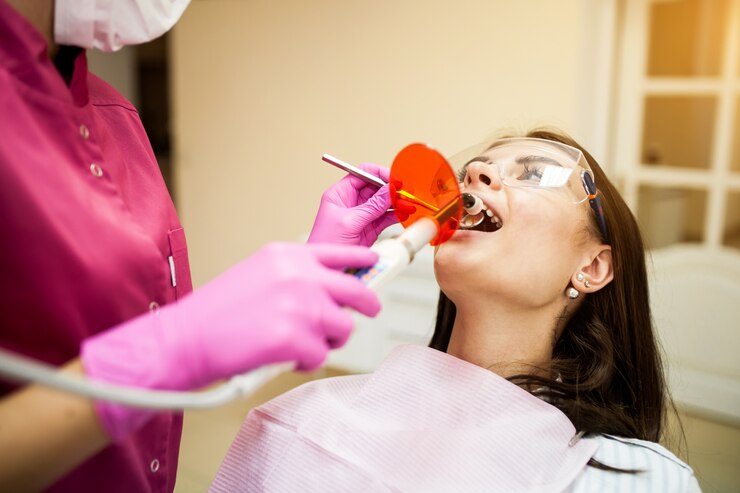Dental emergencies are rarely predictable, and when they occur, swift action is vital. Whether it's a severe toothache, a chipped tooth, or a knocked-out crown, the urgency to find help can be overwhelming. Searching for an emergency dentist near me shouldn’t add to the stress. This guide offers practical advice on how to identify and access the right care without unnecessary delay, ensuring you or your loved one receives prompt and effective treatment.
Recognising the Signs of a Dental Emergency
Before diving into how to find an emergency dentist, it's essential to recognise what constitutes a dental emergency. Common cases include:
- Severe and persistent tooth pain
- Broken or chipped teeth
- Knocked-out teeth
- Lost fillings or crowns
- Infections or abscesses
- Swelling in the mouth or jaw
If any of these symptoms arise, it’s crucial not to wait. Delaying treatment could worsen the condition or lead to complications.
Why Speed Matters in a Dental Crisis
Dental issues can escalate quickly. For example, a chipped tooth might not seem serious initially, but without treatment, it could lead to infection or further damage. A knocked-out tooth, when addressed within 30 minutes, has a significantly higher chance of successful re-implantation. This makes it vital to locate an emergency dentist near me as swiftly as possible.
Start with a Localised Online Search
The internet remains one of the quickest tools for locating urgent care. Typing "emergency dentist near me" into a search engine will typically show nearby clinics, complete with ratings, opening hours, and contact details. Google Maps is especially helpful for visualising your proximity to dental providers, allowing you to compare travel times and clinic availability in real time.
To improve your chances of finding immediate help, refine your search by including terms such as "24-hour" or "open now." Many emergency dentists highlight extended or out-of-hours services in their listings.
Leverage Reviews and Ratings
When every minute counts, reading reviews might feel like a luxury. However, scanning a few recent experiences can help you avoid poor service and identify trustworthy practitioners. Look for keywords such as “responsive,” “same-day appointment,” or “professional care under pressure.” These are strong indicators of how a clinic handles emergency cases.
Check Local NHS and Private Clinic Options
In the UK, both NHS and private clinics provide emergency dental services. NHS 111 can direct you to urgent dental care, though appointment availability may vary depending on the region and time of day. If speed is paramount, a private dental clinic may be the quicker route, albeit at a higher cost.
Many private practices in urban areas offer walk-in or same-day services. Be sure to check whether the clinic offers emergency-specific appointments, as not all general dentists can accommodate urgent needs immediately.
Use Dental Emergency Hotlines
Some regions operate dental hotlines that guide patients to emergency care. These services can direct you to the nearest available professional based on the type and severity of your issue. Keep a record of such numbers in your mobile device or first aid kit to save precious time during an actual emergency.
Prepare Ahead of Time
While emergencies can’t be predicted, preparation can make a huge difference. Compile a list of trusted dental clinics near your home, workplace, and frequently visited areas. Include their contact details, hours, and any special instructions.
In addition, keep your dental insurance details handy and check in advance whether specific clinics accept your policy. This can streamline the process and avoid delays in receiving treatment.
Ask for Recommendations
Word of mouth remains a powerful tool, even in emergencies. If you’re away from home or unsure where to turn, don’t hesitate to ask locals, friends, or colleagues for recommendations. Local pharmacists can also provide insight into which clinics are responsive and reliable in urgent situations.
What to Expect from an Emergency Dental Visit
Once you’ve located an emergency dentist near me, understanding what to expect can ease some of the anxiety. The dental team will likely prioritise relieving pain, stopping any bleeding, and stabilising the situation. Follow-up appointments may be necessary, especially if permanent restorative work is required.
Always be honest about your symptoms and medical history. Even if you're in a rush, providing accurate information allows for safe and effective treatment.
Consider the Costs Involved
Emergency dental care, particularly in private settings, may involve higher fees than routine appointments. These costs can include consultation charges, X-rays, prescriptions, or temporary fillings. If cost is a concern, ask the clinic about pricing before the appointment. Some practices offer payment plans or accept dental insurance for emergency services.
The NHS provides urgent dental care at a fixed fee, but availability and wait times may vary. Understanding these options in advance helps you make informed decisions during a crisis.
Aftercare and Follow-Up
After emergency treatment, follow the dentist's aftercare instructions closely to promote healing and prevent complications. This may include avoiding certain foods, taking prescribed medication, or returning for additional procedures.
Make it a point to schedule regular dental check-ups. Preventive care plays a crucial role in avoiding many common emergencies, such as infections, decay, or gum disease.
Final Thoughts
In moments of panic or pain, locating a trustworthy emergency dentist near me shouldn’t be a struggle. With a bit of preparation, awareness of local options, and a clear plan of action, you can ensure rapid access to quality care when it matters most. Quick thinking, combined with the right information, could be the key to saving a tooth and reducing long-term complications.
By staying informed and proactive, you can turn a dental crisis into a manageable event, resolving discomfort quickly and preserving your oral health for the future.





Comments